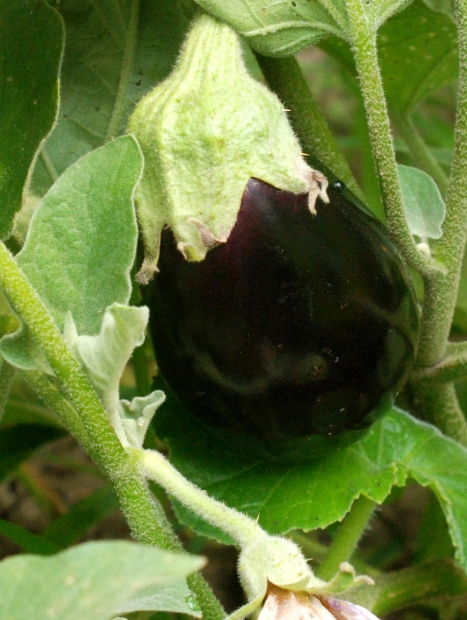
 Loading... Please wait...
Loading... Please wait...Save Money. Grow Your Own!
Fast Plain Box Shipping.
We ship to the US & Canada.
Posted on 17th May 2016
Do you like eggplant?
Dozens of varieties of this classic vegetable are inundating farmers markets and dinner tables around the country. In addition to the traditional large purple eggplant plant that's used a lot in Italian cooking, various types of other smaller eggplant varieties are a trendy new crop that are receiving a lot of culinary attention, partially as part of a thai or fusion eggplant dish.
These plants are often good candidates for hydroponic growth. So how do you grow eggplant in a hydroponic setting? It's relatively easy -- here are some tips.

Lightning Fast Germination
The first step is the process of germination. Eggplants germinate rather quickly -- often within one to two weeks. The heat in the seed environment at around 75° just above room temperature. You should start to see small green shoots come out of the soil or grow media at which point you can transplant the eggplant into your hydroponic system.
Potting
In hydroponic systems, eggplant seedlings sit in sterile grow media such as rockwool instead of soil. You can find small plant pots available from hydroponic retailers and fill them with media. Place the seedlings inside, and you're ready to go. With soil based gardening, you have to worry about spacing where experts recommend 20 to 25 inches in between plants. With hydroponics, you can keep the same rule of thumb, but you don't have to worry as much about spaceing, because a lot of that is already set up for you.
Choose your Hydroponic System
As with any kind of plant, you're going to have to figure out how you want to do hydro. Do you want an ebb and flow or NFT system where water simply passes by plant roots? Or do you want a deepwater culture system where plant roots sit in the water all time?
There's no single magic bullet for eggplants. One recommendation is that if you do go with deepwater culture, have equipment available to oxygenate the water well - that's the biggest disclaimer in terms of getting plants but they need to thrive.
Pollenization
Eggplants are a type of plant that does require cross pollination. If you don't have bees around to do the pollination for you, you can simply brush pollen from one flower to the next to encourage the plants to start budding.
Lighting
Get sufficient grow lighting with enough luminosity and intensity to help plants. Experts recommend at least eight hours of light per day. A lot of growers like to go beyond that for up to 16 hours of light per day.
Temperature
Basically, eggplants like it warm. You can keep temperature in the range of 70 to 80 degrees or even above. You don't want temperatures below 65°, because the plants don't usually do well in these cooler temperatures. However, if you are trying to oxygenate water, you might want to chill water down to a lower temperature between 65 to 75, because oxygen is retained in the water better at these lower temperatures.
Nutrients
What you need to grow an eggplant? Eggplants require nitrogen, phosphorus and potassium, as well as some other trace elements. You can find ready-mix nutrients on the market that will be just fine for eggplants or whatever you are growing. You don't need to be a chemist to start growing -- just take a look at what's on the packet and make sure it's optimized for your particular crop.

Looking Out for Trouble
Eggplants can be vulnerable to various types of insects such as hornworms, spider mites and certain types of beetles. With hydroponics, this shouldn't be as much of a problem because you're growing plants inside. However some insects can still get in, so find ways to keep them off of your growing eggplants. You'll also want to be vigilant about bacterial infestations like Pythium and other potentially damaging conditions like root rot.
Harvesting Eggplants
After a number of weeks, you should have some developed eggplants. When these start to soften, you can pick them off of the stem. Eat them for dinner, sell them or give them away.
Eggplants are a versatile type of crop that can be a real winner in hydroponic systems. As you can see from the above steps, it's not too different to start growing these on your own and making them part of your future crop cycles. With some relatively simple hydro equipment, you can set up new production processes that are less labor-intensive and more automated, to really benefit from this kind of innovative gardening.